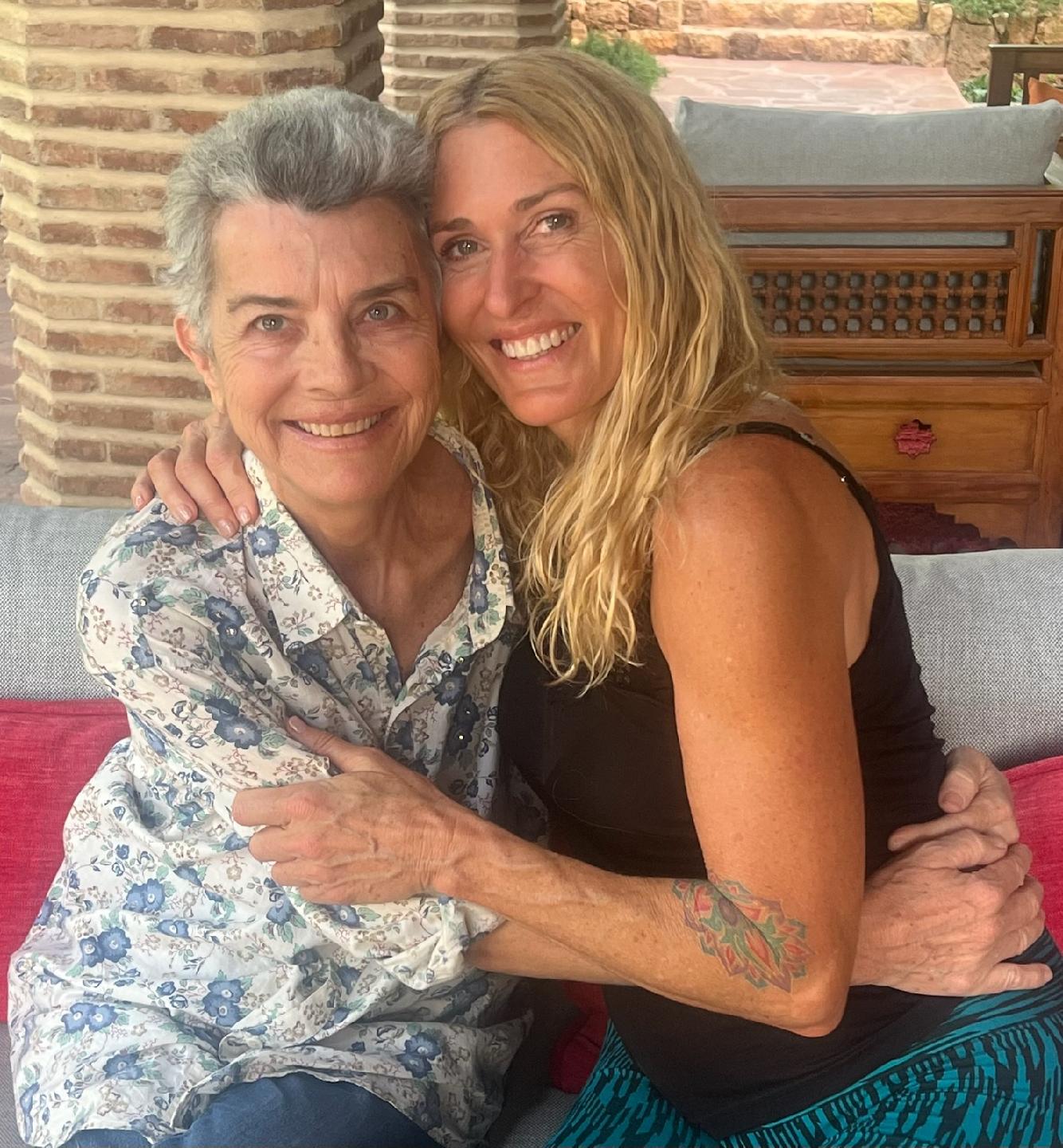Free Breath is Prayer Ceremony
November 17, 2025

Sometimes it's best to just dive in, so here goes… I recently lost my best friend of 50 years, and it's brought everything into perspective in ways I never expected.
Karima is gone. Even writing those words feels surreal. She had cancer, and I knew for quite a while that she was going to die. Yet when it happened, it was still a shock.
Isn't that strange about grief? Even when we see it coming, even when we think we're prepared, the finality of loss still takes our breath away.
Her passing has become an unexpected wake-up call because I realized I wasn't giving myself any rest. I was letting work invade all of my personal hours. Even when I didn't have a full day's work, I was always "on call," blocking off my calendar just in case something came up.
But Karima helped me remember: Life is short. Too short to not plan outings with my kids and go do fun stuff. Too short to live in a constant state of "just in case."
Something has to shift. Something is shifting.
I can't explore the grieving process without telling you more about Karima and me.
We met when we were teenagers, and it was instant recognition. I can only describe it as love at first sight, only completely platonic. We became best friends almost in the blink of an eye. I'm not really one to believe in soulmates, but if they exist, that's the kind of relationship we had—a recognition that we simply needed to be in each other's lives. It was as natural as breathing.
What I now understand, after working with an incredible intuitive named Mary Margrave following Karima's passing, is that my friend was more my family than my actual family.
Karima gave me what we all crave to receive from those who raise us: unconditional love and acceptance. We understood each other despite having very different personalities, and there was the purest love between us, an unconditionality that I'd never experienced.
From our teens until our mid-30s, we traveled the world side by side. We lived together, partied together, worked together. We were one unit, "Gwen and Karima." If I was without her, but around acquaintances and other friends, they would always ask, "Hey, where's Karima?" As if I was missing my other half.
It was such a beautiful, amazing, profound friendship.
Even after we moved to different countries and lost the day-to-day connection, that heart bond never weakened. I'm eternally grateful that I got to see her last year in Morocco before she passed. (In an unexpected twist of healing, it was my ex who made that trip happen. A reminder that sometimes relationships continue to give us gifts even after they end.)
As you can imagine, I'm deep in the grieving process. I've been through this process before, but this time it has taken me down an unexpected journey of reflection. I've been thinking a lot about the way grief isn't really accepted here in the U.S. The cultural norm is to either hide it or push it away so you can "move on" quickly.
But grieving is so different in other parts of the world.
Growing up in Tunisia, my experience of witnessing grief was so different. There, when someone dies, loved ones sit with the body. They cleanse it themselves. The next day, the body is buried, and people come to the cemetery wailing. It's loud and it's messy because there's no holding back. The emotions are allowed to move through the body in waves, exactly as they need to.
But it doesn't stop there. On a weekly basis for several months, people in the community gather to support those experiencing loss. There's an understanding that grief continues; it's not just "we had the memorial, now move on." The Tunisian culture recognizes the passage of grief over time and creates space for it.
Here in America, we're expected to have a memorial and then… be done. There's an unspoken weight of "What, you're still grieving?" as if emotions have an expiration date. Our culture doesn't give us permission to rest, to feel, to process in our own time.
And it doesn't allow space for just how long grief lasts. (In many ways, it's always with us.)
Since our culture doesn't provide space for grief, I've had to create my own. Breathwork is a major part of the process. A few months have passed since I lost Karima, so the grief might feel less present on the surface, but when I take myself into a breathwork journey, I can allow what remains to move through me.
Recently, during a breathwork session, I felt both the grief of Karima's passing and also immense gratitude for the magnitude of our connection. The rarity of it. For the first time, I truly understood the saying: "Better to have loved and lost than never to have loved at all."
The lesson I can share with you about this grieving process is to never fully isolate yourself in your grief. Yes, if you need some time alone to process, then take it. But don't lock yourself away for weeks on end. We need each other. Reach out, even if it's to mentors, healers, or people you haven't met in person. If your family isn't receptive and supportive, create your own grief community.
Give yourself permission to:
● Rest when you need it
● Feel whatever comes up, whenever it comes up
● Seek support without shame
● Create rituals that honor your process
● Take time for self-care without guilt
Please know that there's no timeline, no "right way" to do it. Don't let anyone rush you or make you feel like you should be "over it" by now.
Besides reaching out for support, my strongest invitation is to work on creating your own rituals. Find your own ways to honor both the loss and the love, and create space for integration. As I mentioned, I've been using breathwork as part of my rituals. I've also been using a constellation altar to help me gain greater insight, and I've been using The Passion Test so I can understand my evolving priorities.
What The Passion Test has helped me understand is that grief leads to transformation. When someone important leaves (whether through death or simply the ending of a relationship), your passions naturally shift. What mattered before might not matter as much now, and that's okay.
The test has been showing me that one of my passions is shifting toward more presence, for meaningful connections, for actually living and enjoying my days rather than just scheduling them. I'm craving to live more fully, more authentically, more aligned with what truly lights me up right now.
The beautiful thing about The Passion Test is that it doesn't judge your changing priorities; it simply reveals them. As I've worked through the process these past weeks, I've discovered that some of my passions are completely new (like creating a course for women who want to reclaim themselves). Others are old passions that got buried under years of "I should" and "I have to."
The test gives me permission to let go of what no longer serves and embrace what's calling to me now, even if that looks nothing like what I thought my life would be at this stage.
If you're feeling called to explore your own evolving passions—whether you're navigating loss, life transitions, or simply sensing that your priorities are changing—I'd love to guide you through The Passion Test. Learn more about booking a session here.
Grief and loss make you reassess everything. You might have thoughts like: What are my priorities? How am I spending my precious days? Am I living fully, or am I just getting through?
Life isn't about being constantly available or productive. It's about those moments of pure connection, unconditional love, and allowing ourselves to truly live, with all the messiness, grief, joy, and beauty that entails.
I'm here if you need that support. Grief isn't meant to be carried alone, even in a culture that often expects us to do just that.
So if you're navigating grief or life transitions and need support, I'm here. Book a free 15-minute discovery session to explore how we can work together through this journey.
In memory of Karima, who showed me what unconditional love looks like and whose friendship shaped who I am today. Our 50 years together were a gift I'll always cherish.

Whether you're seeking clarity, healing, or empowerment, our services are tailored to meet your unique needs. Take the first step towards a more inspired life.
